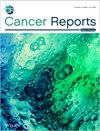Unraveling the Anti-Tumor Effects and Molecular Mechanisms of Hairyvein Agrimonia Herb in Gastric Cancer Through Network Pharmacology and Experimental Validation
Abstract
Background
Stomach cancer has become one of the most common types of cancer, with its mortality rate ranking third in the world. Currently, the main treatments for gastric cancer are surgery, radiation therapy, and chemotherapy. Although current treatments can effectively prevent postoperative metastasis and recurrence of gastric cancer, they may also bring various adverse reactions in the gastrointestinal tract and side effects such as bone marrow suppression. Years of research have confirmed that traditional Chinese medicine treatment for gastric and other cancers has distinct characteristics and advantages. Combined treatment can increase the tumor inhibition rate, reduce the side effects of radiation and chemotherapy, improve patients' quality of life, and prolong the survival prognosis.
Aims
This study explores the anti-tumor effect and specific molecular mechanism of Hairyvein Agrimonia Herb on gastric cancer.
Methods and Results
The combination of network pharmacology technology and various experimental techniques, including in vitro cell verification, was carried out throughout the whole study. The results show that five active components in the Hairyvein Agrimonia Herb can act on 160 carcinogenic targets in gastric cancer. String correlation analysis, Cytoscape network topology analysis, core target screening, protein molecule docking, immunohistochemical expression levels, and survival immune correlation analysis revealed that the carcinogenic genes JUN, HIF1A, and PTGS2 may be the primary drug targets for Hairyvein Agrimonia Herb in treating gastric cancer. The active component quercetin shows the best inhibitory effect on the docking of the PTGS2 protein. Furthermore, the prognostic models constructed by the carcinogenic genes JUN, HIF1A, and PTGS2 are significantly correlated with the survival time of gastric cancer patients.
Conclusion
This study provides a new ethical basis and research direction for understanding the mechanism of action of Hairyvein Agrimonia Herb in treating gastric cancer.


 求助内容:
求助内容: 应助结果提醒方式:
应助结果提醒方式:


